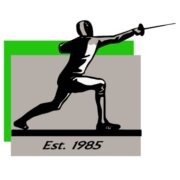Best Government Relations & Lobbying Lawyers in White River
Share your needs with us, get contacted by law firms.
Free. Takes 2 min.
List of the best lawyers in White River, South Africa
South Africa Government Relations & Lobbying Legal Articles
Browse our 1 legal article about Government Relations & Lobbying in South Africa written by expert lawyers.
- B-BBEE Compliance Guide for Small Businesses in South Africa
- B-BBEE compliance is measured on a scale of Level 1 to Level 8, where Level 1 provides the highest competitive advantage for securing government tenders and private sector contracts. Small businesses with an annual turnover under R10 million are classified as Exempted Micro Enterprises (EMEs) and automatically qualify for Level... Read more →
About Government Relations & Lobbying Law in White River, South Africa
Government Relations & Lobbying law refers to the legal framework that governs how individuals, businesses, and organizations interact with government bodies and public officials to influence legislative, regulatory, or administrative decisions. In White River, a town in the Mpumalanga province of South Africa, these activities must comply with South African national laws as well as any local municipal guidelines. The aim is to ensure transparency, ethical conduct, and fair representation in public policy matters. Lobbying in South Africa is subject to a range of rules set out to prevent corruption and ensure that all advocacy efforts are conducted openly and responsibly.
Why You May Need a Lawyer
Engaging a lawyer who specializes in Government Relations & Lobbying can be essential in several circumstances in White River:
- You or your business wish to influence new legislation or regulatory decisions at the municipal or provincial level.
- You are seeking to obtain permits or approvals that require navigating public sector bureaucracy.
- You need advice on advocacy campaigns or public policy initiatives.
- You are responding to allegations of unethical lobbying or improper influence.
- You require guidance on compliance with disclosure obligations when engaging with government officials.
- You are a non-profit organization aiming to advocate for community interests.
- You are involved in tender processes or government procurement and need to ensure proper conduct.
Local Laws Overview
While South Africa does not have a single comprehensive law solely dedicated to lobbying, several statutes and regulations impact how lobbying activities are conducted in White River and the broader country:
- Prevention and Combating of Corrupt Activities Act (PCCAA): Prohibits corrupt interactions with public officials, requiring honesty and integrity in all lobbying efforts.
- Promotion of Access to Information Act (PAIA): Ensures transparency and access to records, with implications for lobbyists seeking government information.
- Municipal Structures Act and Municipal Systems Act: Prescribe standards for public participation and consultation in local government decision-making.
- Code of Conduct for Councillors: Sets ethical expectations regarding interactions between lobbyists and municipal officials.
- Procurement Regulations: Regulate the involvement of interested parties in public tenders, requiring strict adherence to fairness and anti-corruption protocols.
Frequently Asked Questions
What is considered lobbying in South Africa?
Lobbying is any attempt by individuals or groups to influence the decisions of government officials or bodies in relation to legislation, regulations, or public policies. This includes meetings, submissions, advocacy campaigns, and more.
Is it legal to lobby government officials in White River?
Yes, lobbying is legal as long as it is conducted transparently, ethically, and in compliance with anti-corruption laws and disclosure requirements.
Do I have to register as a lobbyist in White River or South Africa?
Currently, South Africa does not require lobbyists to register on a specific lobbying registry. However, adherence to existing laws about transparency and corruption is mandatory.
What actions are prohibited when lobbying in White River?
Offering bribes, gifts, or any form of improper benefit to public officials is strictly prohibited. Misrepresentation, undue influence, or breaches of confidentiality are also illegal.
How can I ensure my lobbying is ethical?
Follow all relevant statutes, maintain accurate records of interactions, engage in transparent communication, and avoid any conflicts of interest or improper inducements.
What are the consequences of unlawful lobbying?
Unlawful lobbying or attempts to improperly influence officials can result in criminal charges, fines, imprisonment, and reputational harm.
Can non-profit organizations lobby local government in White River?
Yes, non-profits can advocate for causes and engage with municipal authorities, provided they comply with laws regarding transparency, advocacy, and public participation.
Do I need a lawyer to contact a local councillor or official?
While it is not mandatory, legal advice helps ensure that all communications remain within legal and ethical boundaries, especially on sensitive or complex matters.
Are there special rules for lobbying during government procurement processes?
Strict rules apply to prevent collusion and corruption. All parties must avoid influencing procurement officials outside formal channels, and disclosures or declarations of interest are usually required.
Where can I learn about upcoming public policy decisions in White River?
Municipal council meetings, public notices, and local government websites are primary sources of information. Lawyers can help interpret policy-making processes and timelines.
Additional Resources
Some organizations and resources which can provide further support or information include:
- White River Local Municipality: For public participation processes, council meeting schedules, and contact information for government officials.
- Legal Aid South Africa: For general legal guidance and affordable legal services.
- South African Government Gazette: The official source for legislative updates and regulatory changes.
- South African Council for the Advancement of the Constitution (CASAC): For advocacy guidelines and civic engagement resources.
- Law Society of South Africa: Directory of legal professionals specializing in public law and government relations.
Next Steps
If you require legal assistance with government relations or lobbying in White River, South Africa, consider the following steps:
- Define your objectives and gather any documents relating to your intended government interactions or advocacy activities.
- Consult a qualified lawyer with experience in administrative, public, or government relations law.
- Prepare a list of questions or concerns for your legal advisor to ensure clear understanding of your obligations and rights.
- Ask your lawyer to review your communications or proposed activities for legal and ethical compliance.
- Familiarize yourself with applicable local government procedures for public input, submissions, or consultations.
- If necessary, seek ongoing legal guidance throughout your engagement with public officials or bodies.
Lawzana helps you find the best lawyers and law firms in White River through a curated and pre-screened list of qualified legal professionals. Our platform offers rankings and detailed profiles of attorneys and law firms, allowing you to compare based on practice areas, including Government Relations & Lobbying, experience, and client feedback.
Each profile includes a description of the firm's areas of practice, client reviews, team members and partners, year of establishment, spoken languages, office locations, contact information, social media presence, and any published articles or resources. Most firms on our platform speak English and are experienced in both local and international legal matters.
Get a quote from top-rated law firms in White River, South Africa — quickly, securely, and without unnecessary hassle.
Disclaimer:
The information provided on this page is for general informational purposes only and does not constitute legal advice. While we strive to ensure the accuracy and relevance of the content, legal information may change over time, and interpretations of the law can vary. You should always consult with a qualified legal professional for advice specific to your situation.
We disclaim all liability for actions taken or not taken based on the content of this page. If you believe any information is incorrect or outdated, please contact us, and we will review and update it where appropriate.









